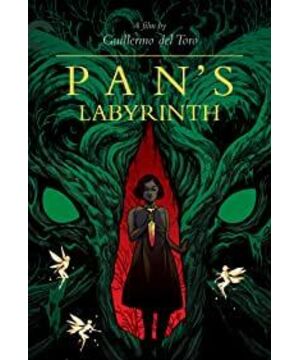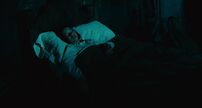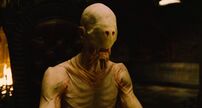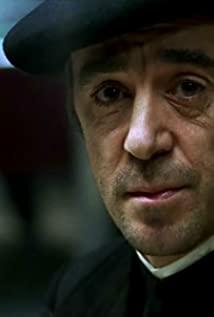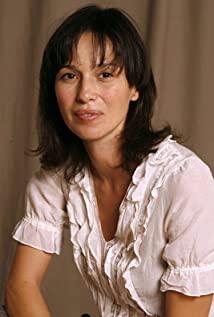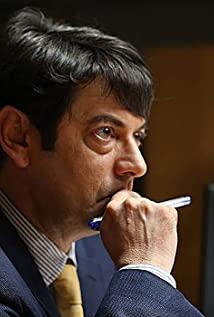The answer is often not that complicated, it's just that magic realism shines again.
The so-called magical realism is a novel genre that intersperses mythical and grotesque characters and plots into realistic stories. But in essence, what magic realism wants to show is not magic, but reality. Magic is just a technique. It is its original purpose to expose social evils and criticize the dark reality.
The reality that "Pan's Labyrinth" wants to express is obvious-the Spanish Civil War. It's just that the greedy director cast such a big net in this simple story. Exhausted, hope to make up for the shortcomings of good luck! From wars, revolutions, religions, ideals to hopes, to the sacred scenes of paradise that all people yearn for, the heaven is magnificent.
At the end of the film, the title "El Laberinto del Fauno" was played, but it suddenly became strange. FAUNO is the ancient Roman god of farming, friendly, in charge of animal husbandry and agriculture, similar to the combination of antelope or deer and people, and has a gentle temperament. But he is not Pan Shen.
Therefore, the Chinese translation of the movie "Pan Shen's Labyrinth" is actually wrong, and the literal translation should be "Fa Weng's Labyrinth".
PAN is the god of agriculture and faun in ancient Greece. There are a pair of goat horns on the head, and a goat tail and two legs on the lower body. Although she is also a shepherd, she is lustful, a symbol of sex, and a sign of panic and nightmares. Physically, the biggest difference between the two is that FAUNO is a handsome man, while PAN is very ugly, and his legs are lamb legs.
Is the sheep man in the movie FAUNO or PAN? When Ophelia met him in the maze for the first time, he introduced himself as FAUNO. This is also in line with the original name of the movie.
But it is obvious that when the lower body of the sheep-man's shape in the film is close-up, there are two dry legs of lamb. Therefore, this sheep man is actually PAN (Pan Shen).
In Greek mythology, PAN actually has another meaning-a scam. In this way, you can understand why it said that it was FAUNO when it introduced itself. And "The Labyrinth of the Faun" is indeed more ironic than "The Labyrinth of the PAN". And this scam may not only refer to his self-introduction, maybe the palace, maybe this guerrilla warfare, and even this movie is too big a scam.
The term Labyrinth also has a profound meaning. In Christian doctrine, the labyrinth has sacred power. The whole life of a person is like a maze, and the center of this maze is the turning point of life. Only through a difficult and tortuous pilgrimage, can we say goodbye to the sinful life, reach the center of the labyrinth, and find the purpose of life there. Therefore, Ophelia's exploration in the maze is actually a search for her inner soul. And when she reached the center of the labyrinth, what she heard and saw was actually the deepest voice in her soul and her deepest desire-a messenger who promised to take her away from the evil world.
Such religious implication is undoubtedly profound, and the director's gift to religion is more than that.
In the film, Ophelia's first mission is to go to a withered fig tree and kill a toad to get the golden key. Why is it a fig tree? If you know the Bible, even if you have only heard it, then everything will be clear. In the "Bible", the fig tree has extremely far-reaching and rich image connotations. Adam and Eve were stealing the fruit of the tree of life. "The eyes of the two of them were bright, and they knew that they were naked. Before this, "Genesis" Chapter 2 verse 25: People want to leave their parents and make peace with their wives. At that time, the husband and wife were naked and were not ashamed. So they used fig leaves to weave skirts to cover their shame, so the fig tree is connected with the metaphor of civilization.
So the fig tree in the film represents Spain or the whole of Europe at that time. The branches and leaves of civilization have been eaten away by the brutal dictator. They have withered to the point of crumbling. And Ophelia has to find the golden key to defeat the enemy and establish a new civilization.
And this coincides with another line of the film-under the rule of the dictator Franco, the leftist socialist government that continues to fight in a guerrilla manner. They want to save Spain, save civilization.
So far, many revolutionaries began to merge the image of Ophelia with the image of revolutionaries. It is true that Ophelia's three missions are not only like a revolution, but also coincide with the three actions of the guerrillas. First get the "key" to unlock hope from the dictator, then get the "dagger" to fight, and finally sacrifice to the revolution with blood and body. Throughout the whole play, from the enlightenment of ideas (filling eyes), to revolutionary actions (finding keys, taking short swords), to bloodshed and sacrifice (death), and building a new society (competition for babies), Ophelia is almost Finished a complete revolution. It's a pity that such a heavy historical mission is too unreasonable to just put it on a soft girl.
Perhaps, the so-called saving civilization is really just a "PAN".
Maybe, maybe this is just an obligation, an obligation for me as a representative. I was held high above everyone, representing history and people's livelihood. So I can only choose to complete your statement. Even if this is not what I want.
But she is not the master, she is just a weak representative pushed forward by everyone. A girl who couldn't even save herself. God Pan claims to be a guide and "your humble servant", but as a servant he can yell at his master, and he also promises his master to "obey me", and can even control the master's return or not. . Actually this is not a servant. Just another powerful man!
The important point is whether this Pan God really exists and whether everything is just the little girl's imagination. When Ophelia turned around, the captain only saw Ophelia.
If everything is as mentioned above, and the center of the maze is Ophelia's inner world, then Pan Shen will only evolve from his own ideals. If so, the mission of a person who can't even control her ideals and imagination will suddenly become clear.
The doctor’s faint words in the jungle, the whole story is broken: your ideals are confused.
As many commentators have said, the newborn child represents the future. But this future, either the captain's or Pan Shen's, they all represent a kind of strength, and Ophelia is never one of the options. What she represents is just a romantic fairytale ideal, in which there is no future at all.
Ophelia is dead.
So where is the director's point of view? What kind of attitude is he talking about?
The easiest way is to determine whether the film itself is a tragedy or a comedy. This allows us to see whether the director is trying to explain a positive or negative attitude.
In "On the Falling of Leifeng Pagoda", Lu Xun defined tragedy as destroying the valuable things of life to others. Hamilton also said that tragedy is the process by which the life state of a great person goes to a trough, while comedy is the opposite. Later Dante named his work "Commedia, Divine Comedy"-"Divine Comedy" (ie "Divine Comedy"), because this is a hell plundered from fire, a purgatory of terrible pain, passing through Shengqinghe The story of the baptism of water and then to heaven. Dante’s original name for him was actually only two characters "Comedy"!
In the end, Ophelia didn't have to satisfy the demand that the representative longed for. The revolutionaries won the final "victory" in the tall pine forest, and the paintings condensed into the solemnity of an oil painting, illuminating the road with the light of fire. It's just useless Ophelia.
Ophelia fell in a pool of blood, and the Pan Shen she had portrayed did not lend a helping hand. Just in this moment, the match girl struck the last match. Death opened the door to wonderland. Ofelia, who gave her blood, completed a process similar to the crucifixion of Christ, and finally returned to her homeland. The final shot shows the imaginary kingdom, inlaid with the light of stars, like the gold of heaven. This is a standard "Revelation" scene. In the temple of God, the Father God is high in it, and the Son of God sits beside it. .
And the center of Labyrinth (labyrinth) also completed his final meaning as a religious image-the entrance to heaven. In this labyrinth-like life, Ophelia finished her pilgrimage, and the sinful life she tried her best to escape, finally calmed down. And the messenger who stayed in the center of the labyrinth—the messenger who took her away from the evil world, was her sacrifice.
Sacrifice is not enough to redeem all sins, but it is enough to redeem yourself.
View more about Pan's Labyrinth reviews


